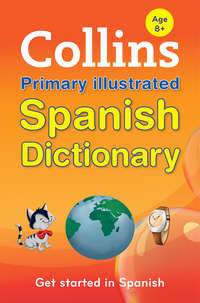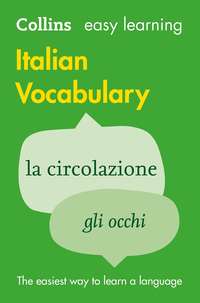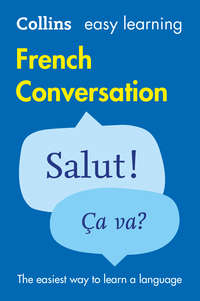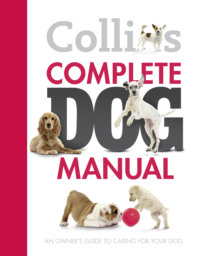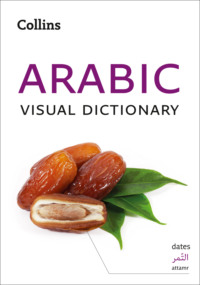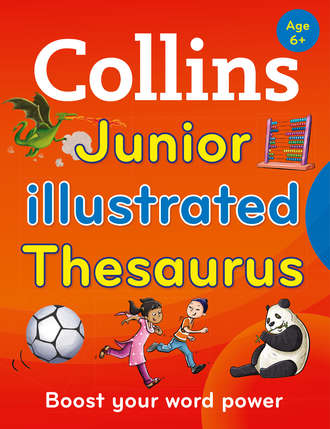
Полная версия
Collins Junior Illustrated Thesaurus

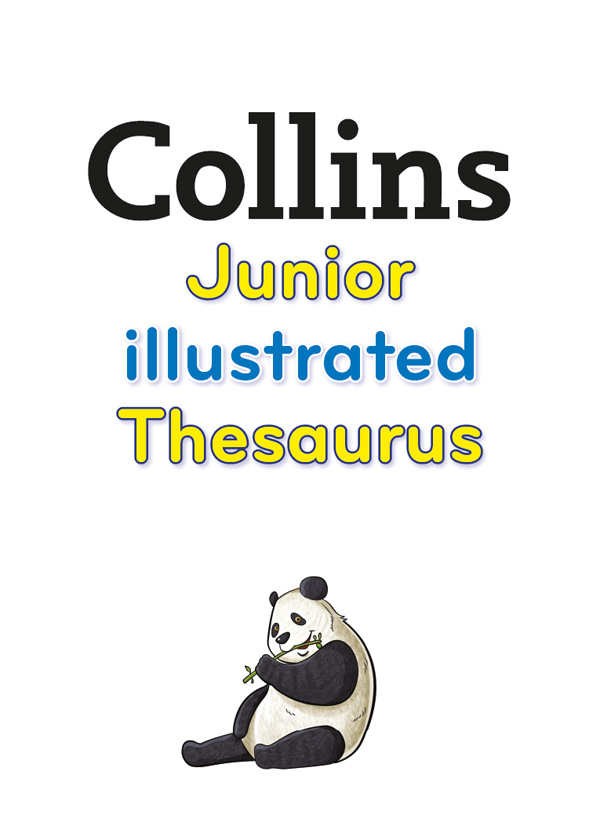
Contents
Cover
Title Page
Using this thesaurus
Aa
Bb
Cc
Dd
Ee
Ff
Gg
Hh
Ii
Jj
Kk
Ll
Mm
Nn
Oo
Pp
Rr
Ss
Tt
Uu
Vv
Ww
Xx
Yy
Zz
Word list pages
Amphibians
Animals
Birds
Body
Books
Buildings
Cars
Clean
Cold
Colours
Cooking
Crimes
Criminals
Dance
Drinks
Flowers
Fruit
Groups
Insects
Jobs
Magic
Mammals
Music
Pictures
Poetry
Reptiles
Shapes
Sounds
Space
Sports
Stories
Time
Trees
Vegetables
Water
Weather
Young animals
Index
Picture Credits
Copyright
About the Publisher
Using this thesaurus
A thesaurus helps you choose exactly the right word to make your writing more interesting. In your writing, do you find you use words like good, bad and nice too often? A thesaurus will help you find other words with the same meaning.
How to find a word
If you want to find a different way of saying a word, think of its first letter. Once you know this, there is more than one way to find your word in the thesaurus:
• You can use the Index at the back of the ebook which lists all of the thesaurus words in alphabetical order. Scroll through the Index until you find the letter your word begins with, then look down the words until you find the one you are looking for. You can then follow the link to the entry in the thesaurus.
• You can use the Contents page at the front of the book, which has a link to every letter in the thesaurus. Follow the link to the letter your word begins with, then look through the entries in this letter until you find the word you are looking for. The entries are in alphabetical order.
Once you have found your word in the thesaurus, you can choose the synonym that suits your writing. A synonym is a word or phrase that has a similar meaning to the headword. Read the example sentences to understand how each synonym can be used.
Choosing the right synonym

1. The headword is the word that you want to find a synonym for.
2. Some headwords also have a number in brackets. This tells you that this headword can have different meanings.
3. Next you will see the part of speech. This tells you what type of word the headword is, such as a noun, verb, adjective, adverb or pronoun. If the word you want to find is a verb, make sure the headword you look at is also a verb.
4. Underneath the headword, you will find the definition. The definition tells you what the headword means.
5. The synonyms are listed below the definition of each headword. Synonyms have similar meanings to the headword.
6. Every synonym in the Collins Junior Thesaurus has an example sentence. This shows you how the word might be used in speech or writing.
7. Some headwords and synonyms have an illustration or photo to help you read the word and understand its meaning.
Other features of this thesaurus
This arrow ➔ points to a booster. Boosters are lively words and phrases that can be used to replace a headword. Boosters are usually words that are used in speech as slang, in proverbs and in mottos. For example:
noisy ADJECTIVE
Someone or something noisy makes loud or unpleasant sounds.
boisterous
Dad complained the party was getting far too boisterous.
deafening
Suddenly there was a deafening clap of thunder.
loud
The boys’ game was much too loud.
piercing
She was a nice girl, but they couldn’t stand her piercing laugh.
➔ ear-splitting
An antonym is a word that means the opposite of another. When a headword has an antonym, the antonym is shown at the end of the entry.
hot (2) ADJECTIVE
You say food is hot if it has a strong spicy taste.
peppery
The meal was a bit too peppery for me.
spicy
Dad likes his curries really spicy.
ANTONYM: mild
Word list entries
There are special themed entries throughout this thesaurus to support your writing.
At these entries you will find lists of things, such as parts of the body, colours and different types of animal. You might also find labelled illustrations to help you understand the words in the list. The word list pages are listed on the Contents page.
Online resources
Explore further at www.collins.co.uk/homeworkhelp for games, activities and extra support for parents and children.
Aa
accident (1) NOUN
An accident is something nasty that happens by chance.
calamity
The flooding river caused a calamity and the house was wrecked.
catastrophe
That plane crash was a catastrophe.
collision
Mark damaged his bike in a collision with the gatepost.
crash
There was a bad crash on the motorway.
disaster
Tom’s walk ended with a disaster when he fell in the canal.
mishap
“Just a mishap,” said Dad, after his keys fell down the drain.
accident (2) NOUN
If something happens by accident, it was not planned.
chance
The friends met by chance at the disco.
coincidence
Ben and Rosie got the same answers by coincidence.
afraid ADJECTIVE
Someone who is afraid thinks that something nasty might happen.
anxious
Mole felt anxious in the wild wood.
nervous
“You don’t need to be nervous,” said the dentist. “This won’t hurt a bit.”
panic-stricken
They were panic-stricken when they heard the ice crack.
petrified
Emma was petrified during her ride on the big dipper.
scared
Goldilocks was scared when the three bears found her.
worried
Our cat was worried when the pet-shop owner picked up her kittens.
➔ numb with fear; scared to death
amphibian NOUN
An amphibian is an animal that can live on land and in water.
TYPES OF AMPHIBIANS:
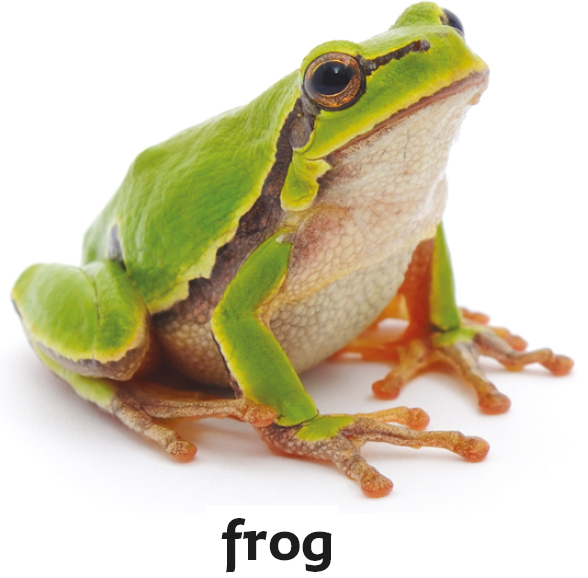
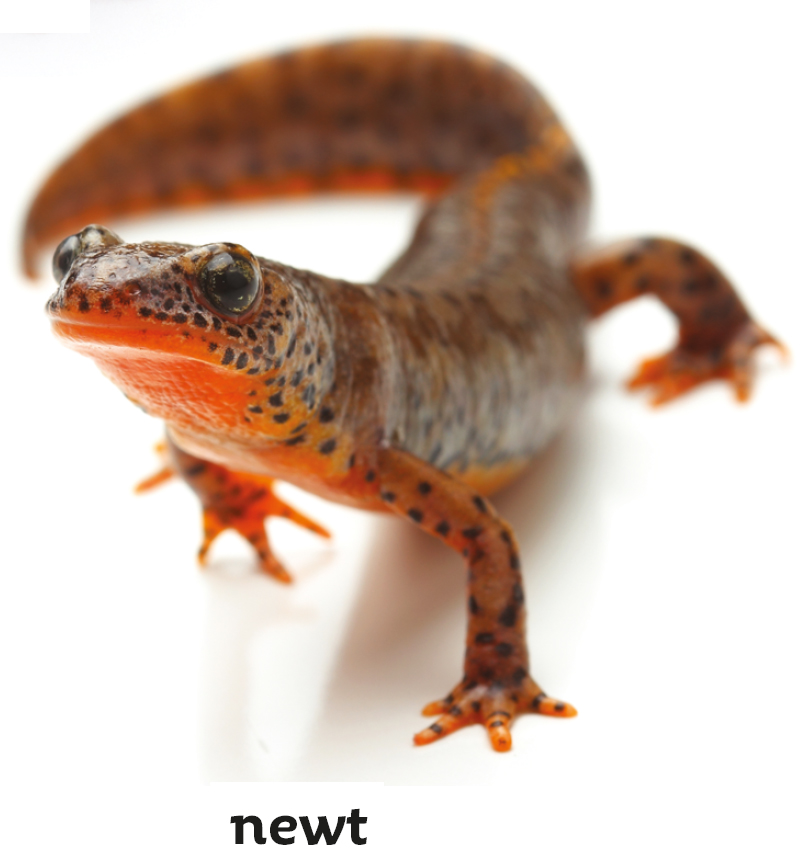
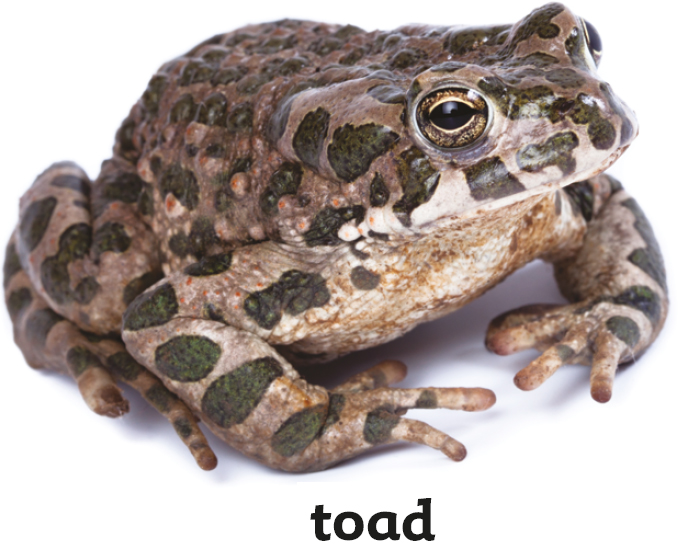
anger NOUN
Anger is the strong feeling you have about something that is unfair.
fury
My little brother stamped his foot in fury when I wouldn’t play with him.
outrage
There was outrage among farmers when the plans were announced.
rage
Nobody dared annoy the ogre, because his rage was terrible to see.
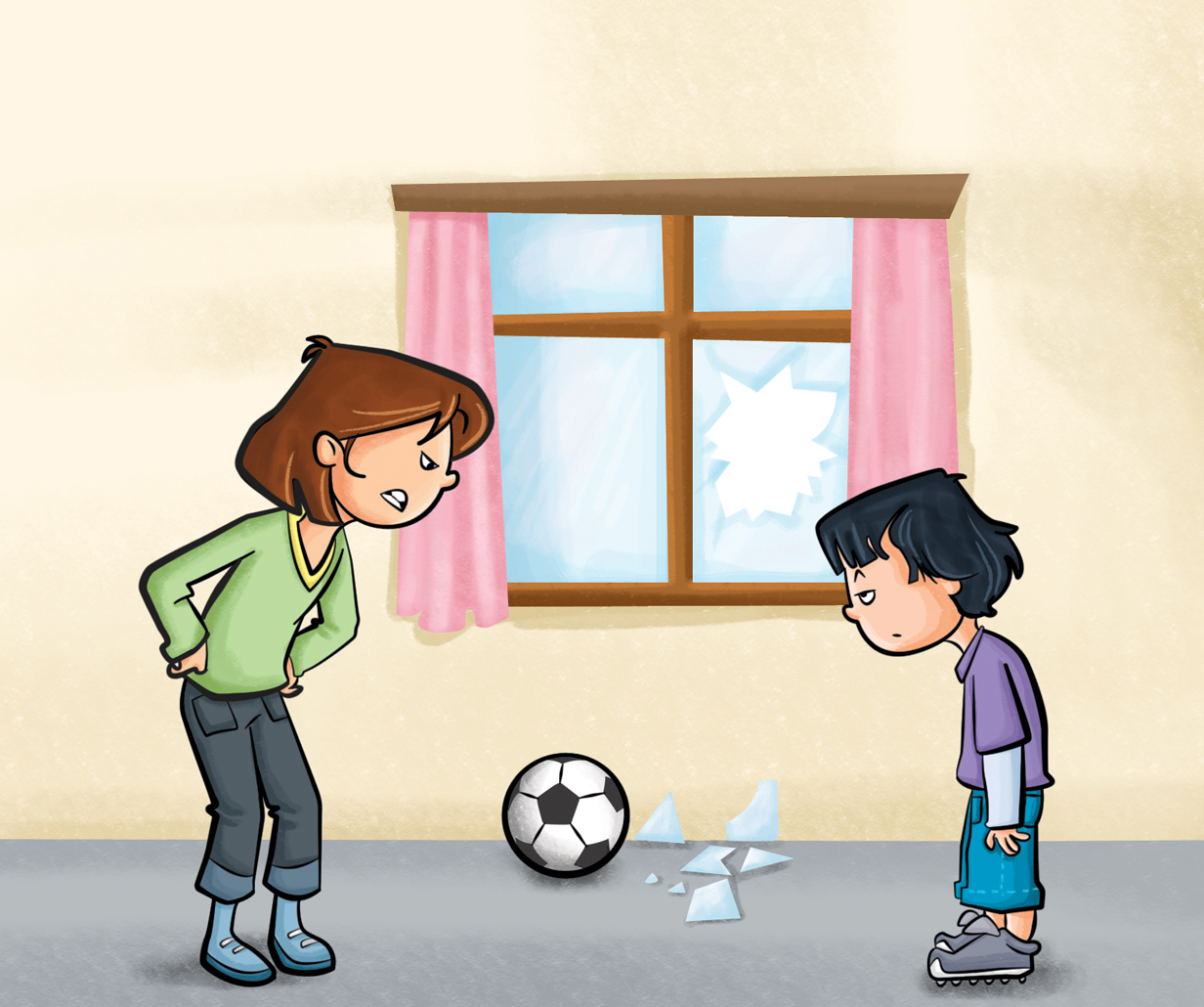
angry ADJECTIVE
If you feel angry, you are very cross.
annoyed
Alice was annoyed with the Mad Hatter and the March Hare.
cross
Steven was cross when his sister finished his jigsaw.
enraged
Michael was enraged when thieves stole his new bike.
furious
His sister was furious about the broken window.
infuriated
Grandpa was infuriated because squirrels had dug up his flower bulbs.
mad
I made my best friend mad by shouting at her.
wild
Sarah was really wild when her little brother scribbled on her work.
➔ climbing the walls; fuming; going ballistic; livid
ANTONYM: pleased
animal NOUN
Animals are living things that are not plants. Humans, mammals, birds, fish, reptiles and insects are all animals.
beast
Fabulous beasts roamed wild in the enchanted forest.
creature
Mice are timid creatures.
KINDS OF ANIMALS:
amphibian
bird
fish
insect
mammal
reptile
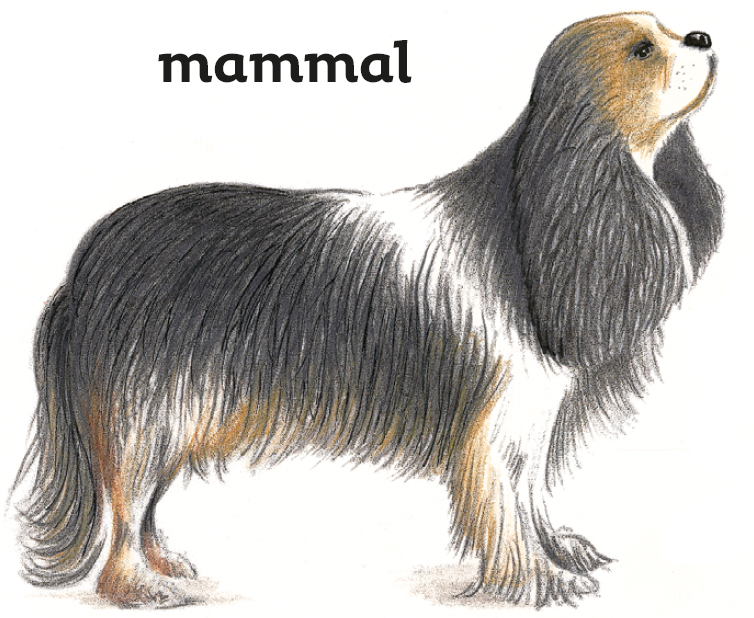
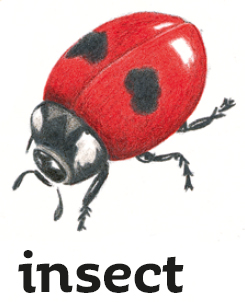
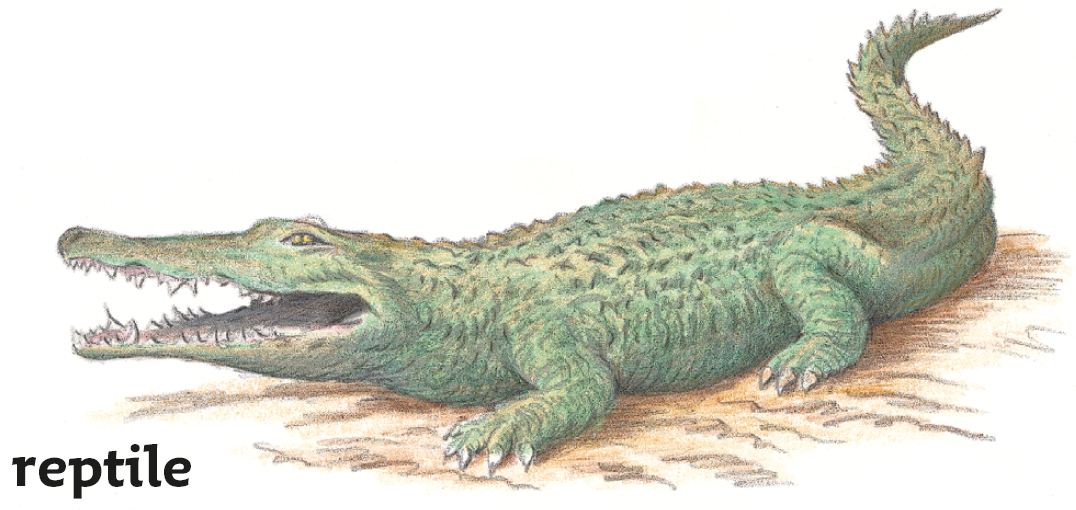
annoy VERB
If you do something that annoys someone, you make them cross.
bother
The horse lashed its tail at flies that were bothering it.
hassle INFORMAL
Stop hassling me or we won’t go at all.
irritate
It irritates Thomas when people treat him like a child.
pester
The cubs would not stop pestering the old lion.
➔ drive someone crazy; get on someone’s nerves
appear (1) VERB
If something appears, it moves into a place where you can see it.
come into view
At last the train came into view round the bend.
emerge
A mouse emerged from a small hole in the skirting board.
turn up
They waited ages for the bus to turn up.
appear (2) VERB
If someone appears in a show or play, they take part in it.
act
Our drama teacher is looking for people to act in Peter Pan.
perform
I’ve been asked to perform in the school concert tonight.
argument NOUN
An argument is a talk between people who do not agree.
disagreement
There was a disagreement about the new kitten’s name.
fight
We had a bit of a fight over whose turn it was to wash up.
quarrel
Sophie was unhappy after the quarrel with her friend.
squabble
“I don’t want the usual squabble about this,” said Mary.
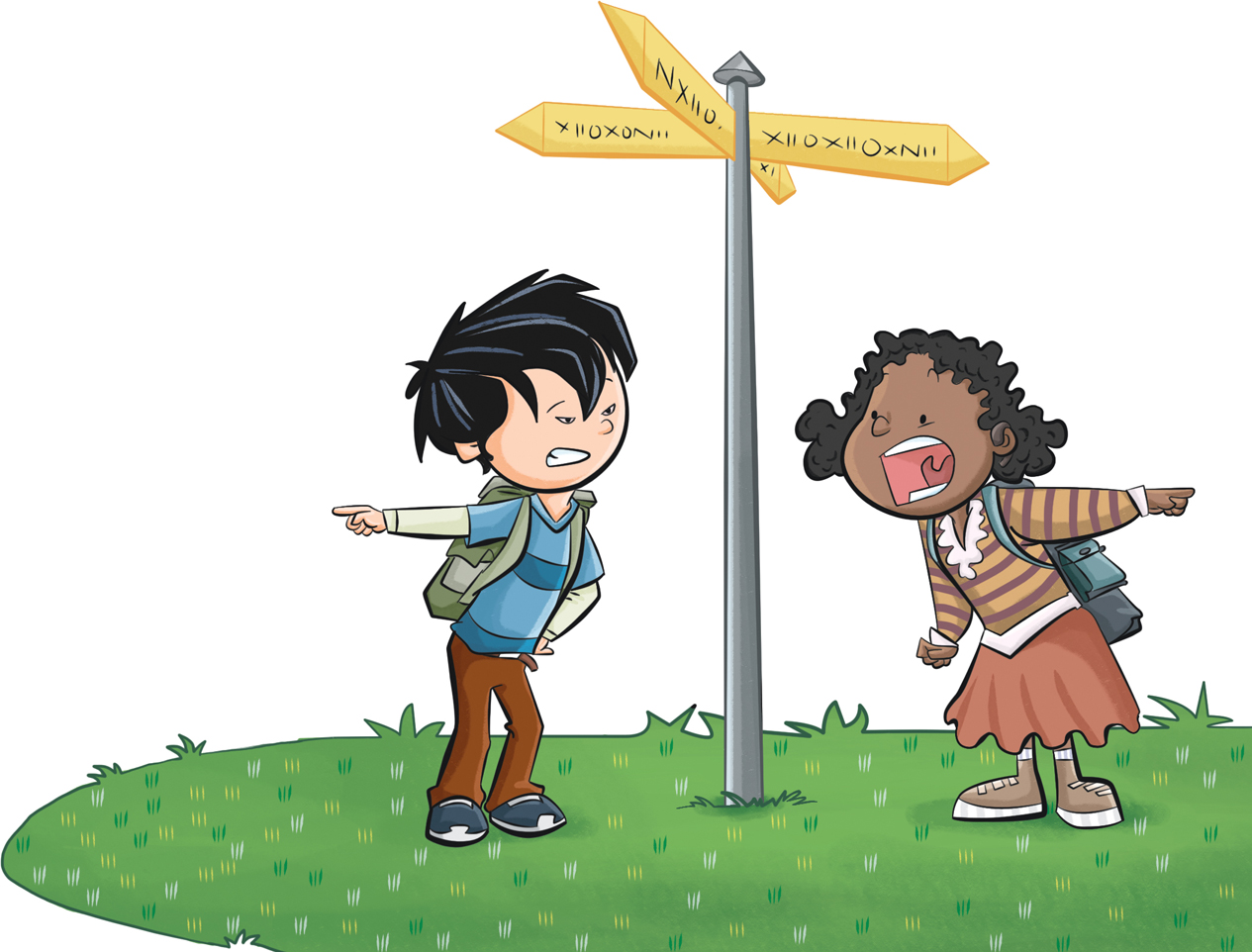
arrange (1) VERB
If you arrange something like a party, you make plans and organize it.
fix
We’d better fix the date soon or there won’t be any seats left.
organize
My mum’s great at organizing things, but she won’t do any cooking.
plan
William’s sister is planning a wedding at the end of the year.
arrange (2) VERB
If you arrange things like flowers, you group them in a special way.
group
Harry grouped the rocks according to size.
set out
The books were set out on the shelves.
sort
Dad sorted his files in alphabetical order to make them easy to find.
arrive VERB
When you arrive at a place, you reach it at the end of your journey.
come
What time’s Jeremy coming?
turn up
Chloe could turn up any minute now.
ask (1) VERB
You ask for something when you want to be given it.
beg
James begged his dad for a mountain bike for his birthday.
demand
“Who’s been playing with my camera?” demanded Dad.
order
The highwayman ordered them to hand over their jewels.
plead
Holly pleaded to be allowed to stay up late and read her book.
request
The sign read, “Parents are requested to control their children.”
ask (2) VERB
If you ask someone a question, you are trying to find something out.
enquire
“May I enquire,” said the teacher, “why that mouse is in your pocket?”
find out
I’ll find out what time the train goes from the station.
interrogate
“You don’t have to interrogate me,” said Nina. “I’ll tell you anyway.”
question
The police said they were questioning a number of people.
ask (3) VERB
If you ask someone somewhere, you want them to come.
invite
I invited all my friends to my birthday party at the pool.
summon
Christopher was summoned to the head teacher’s office.
attractive ADJECTIVE
If someone or something is attractive, they are nice to look at.
beautiful
The car stopped and a beautiful woman got out.
charming
We had tea in the garden of a charming little cottage.
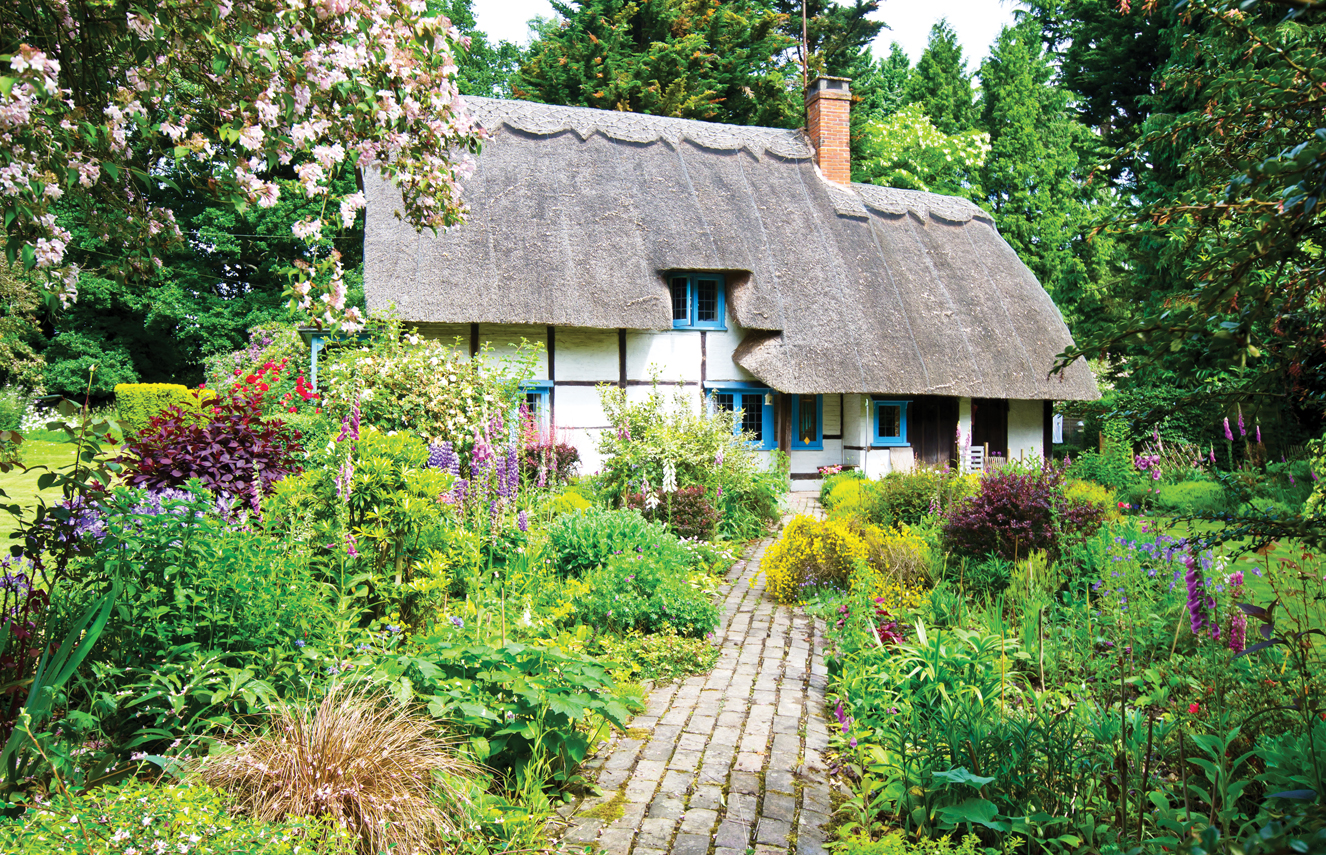
handsome
“I’ll turn into a handsome prince if you kiss me,” said the frog.
lovely
There was a lovely view from the window.
pretty
On the way, we passed through several pretty villages.
awful ADJECTIVE
Something awful is very unpleasant or bad.
bad
The weather was so bad we had to cancel the picnic.
dreadful
Sarah had a dreadful cold and found it hard to breathe.
horrible
A horrible smell came wafting from the witch’s cauldron.
terrible
Rosetta’s writing is so terrible nobody can read it.
unpleasant
They’ve painted the walls an unpleasant shade of green.
Bb
bad (1) ADJECTIVE
You say somebody is bad if they are naughty or wicked.
criminal
The police arrested four of the men for criminal behaviour.
disobedient
I have a very disobedient dog. He doesn’t come when I call him.
evil
Stories often tell of the fight between good and evil forces.
vile
“You’re vile!” she screamed. “Go away!”
wicked
The wicked queen gave Snow White a poisoned apple.
ANTONYM: good
bad (2) ADJECTIVE
If something is bad, it is harmful, unpleasant or upsetting.
appalling
Conditions on the road were appalling. There were several accidents.
disgusting
A disgusting smell came from the cave. An ogre was washing his underpants.
dreadful
The kitchen was in a dreadful state when Sanjay had finished making a cake.
harmful
Pollution is harmful for the environment.
hazardous
There is thick fog on the motorway and driving conditions are hazardous.
horrid
Amy stood in the doorway. “I’ve just had a horrid dream,” she said.
nasty
The medicine tasted really nasty.
severe
Darren the dragon had a severe coughing fit and set light to the furniture.
terrible
The weathermen were forecasting terrible floods for the weekend.
unpleasant
Walking to school was really unpleasant. Slush was everywhere.
bad (3) ADJECTIVE
You say something is bad if it is of poor quality.
careless
Your answers are right, but your presentation is careless.
faulty
Robert’s handling of the cricket bat was faulty so he couldn’t hit the ball.
poor
The lighting was so poor nobody could see the steps properly.
shoddy
The cupboard was so shoddy that it fell apart when I opened it.
wrong
The instructions were wrong so we couldn’t see how to assemble the kit.
ban VERB
If someone bans something, you are not allowed to do it.
forbid
Our teacher has forbidden sweets and crisps in the classroom.
prohibit
The council has prohibited skateboarding in the shopping centre.
band (1) NOUN
A band is a small number of people, like a group of musicians.
group
Five of us have formed a pop group.
orchestra
Our school has its own orchestra.
band (2) NOUN
A band can be a strip of material such as iron, cloth or rubber.
hoop
Metal hoops held the barrel together.
strap
Strong straps keep the luggage safe on the roof rack.
strip
Strips of gold round the sailor’s sleeve showed he was in charge.
bang NOUN
A bang is a sudden loud noise.
blast
They heard a blast from the rocket as it launched.
boom
A boom from the explosive echoed round the quarry.
explosion
There was a deafening explosion and the ground shook.
knock
Suddenly, there was a loud knock at the front door.
bare (1) ADJECTIVE
If something is bare, it has nothing in it or on it.
empty
She looked for food in the cupboard, but it was empty.
unfurnished
The place was unfurnished except for a table and one chair.
bare (2) ADJECTIVE
If part of your body is bare, it is not covered by clothes.
naked
The baby lay naked, kicking her legs.
nude
The painting showed a nude woman holding a towel.
undressed
“You can’t come in!” she shrieked. “I’m undressed!”
basic ADJECTIVE
Basic means the simplest things you need, or need to know.
chief
The chief thing to remember when hiking is to shut gates behind you.
essential
Water is an essential requirement for all living creatures.
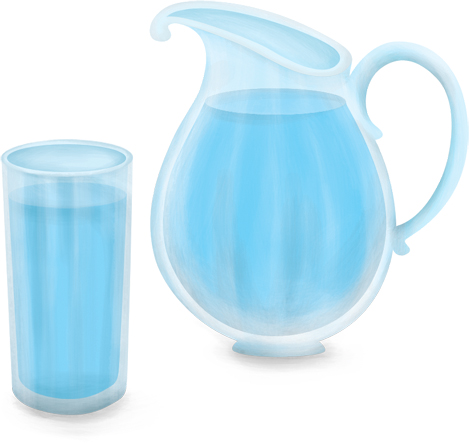
important
An important rule is to check the traffic before you cross a road.
main
The main thing is not to panic if the fire alarm goes off.
standard
Our car is a standard model.
beautiful (1) ADJECTIVE
You say something is beautiful if it gives you great pleasure to look at or listen to.
amazing
There’s an amazing view of the countryside from here.
attractive
It’s an attractive village with a very old church in the centre.
enchanting
The castle has an enchanting garden.
fine
It was a fine day so Finlay went for a paddle at the beach.
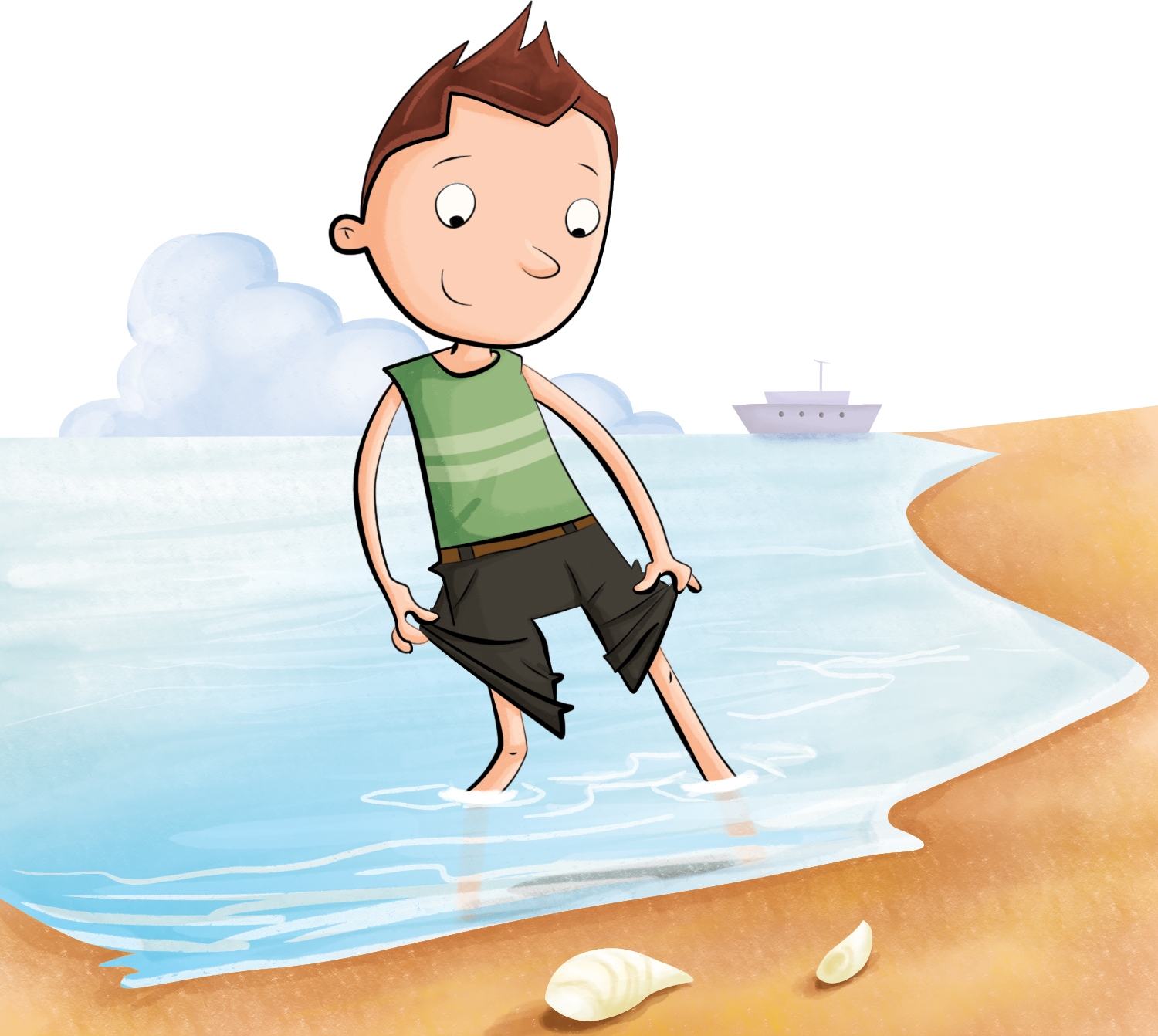
glorious
“Summer weather here is absolutely glorious,” exclaimed Gran.
gorgeous
Princess Jane wore a gorgeous dress sparkling with jewels.
graceful
The ballerina performed a graceful curtsey for the audience.
incredible
It was an incredible building with dozens of turrets.
magnificent
The king wore magnificent robes.
pretty
There’s a pretty cottage round the corner.
spectacular
The fireworks were spectacular.
splendid
The singer had a splendid voice.
stunning
“Wow! Your new hairstyle is absolutely stunning!” said Fiona.
beautiful (2) ADJECTIVE
You say someone is beautiful if they are lovely to look at.
good
Mum looked really good in her new outfit.
good-looking
The girl next door’s really good-looking.
lovely
The princess looked lovely on her wedding day.
believe VERB
If you believe someone or something, you think what is said is true.
accept
She can’t accept that she is wrong.
trust
I trusted him, but it seems he was not telling the truth.
bend (1) VERB
When something bends, it becomes curved or crooked.
buckle
Her bike hit a rock that badly buckled the front wheel.
fold
The blacksmith heated a strip of iron and folded it in half.
twist
A man twisted long balloons into the shape of an animal.
bend (2) NOUN
A bend is a curve in something.
corner
The house you are looking for is round the next corner.
curve
Round a curve in the river was the waterfall where we ate our picnic.
loop
Loops in the mountain road made the drive scary.
bend (3) VERB
When you bend, you move your body forwards and downwards.
bow
The farmer bowed his back under a heavy sack of oats.
crouch
The girl crouched down in a field during a game of hide and seek.
lean
Sam leaned over and stroked the kitten.
stoop
Stooping down, she touched the track made by the deer.
better (1) ADJECTIVE
Something that is better than something else is of a higher standard or quality.
finer
I couldn’t have had a finer teacher.
greater
After all his study, he had a greater understanding of the subject.
better (2) ADJECTIVE
If you are feeling better after an illness, you are not feeling so ill.
healthier
Sean certainly looks much healthier now.
recovering
Grandma had a nasty fall but she is now recovering.
stronger
I felt really weak, but I’m getting stronger every day.
big (1) ADJECTIVE
Something or somebody big is large in size.
bulky
The parcel was too bulky to fit through the letterbox.
enormous
Lionel got squashed when an enormous dog sat on him.
giant
At the end of the party Uncle Simon set off a giant firework.
grand
The concert was in a very grand house.
great
There was a great gasp from the audience.
huge
Elephants are huge animals.
immense
This money will be an immense help to the new hospital.
large
Matt took a large bite of chocolate cake and grinned contentedly.
massive
A massive rock crashed to the ground in front of them.
mighty
There was a mighty roar from the crowd when we scored the winning goal.
vast
A vast mountain rose before them, its top lost in mist.
➔ colossal; gigantic; mammoth
big (2) ADJECTIVE
Sometimes big can mean important, or having a lot of influence.
important
“Hey, I think we’ve found something important,” said Carter.
serious
Burglary is a serious problem in this area.




